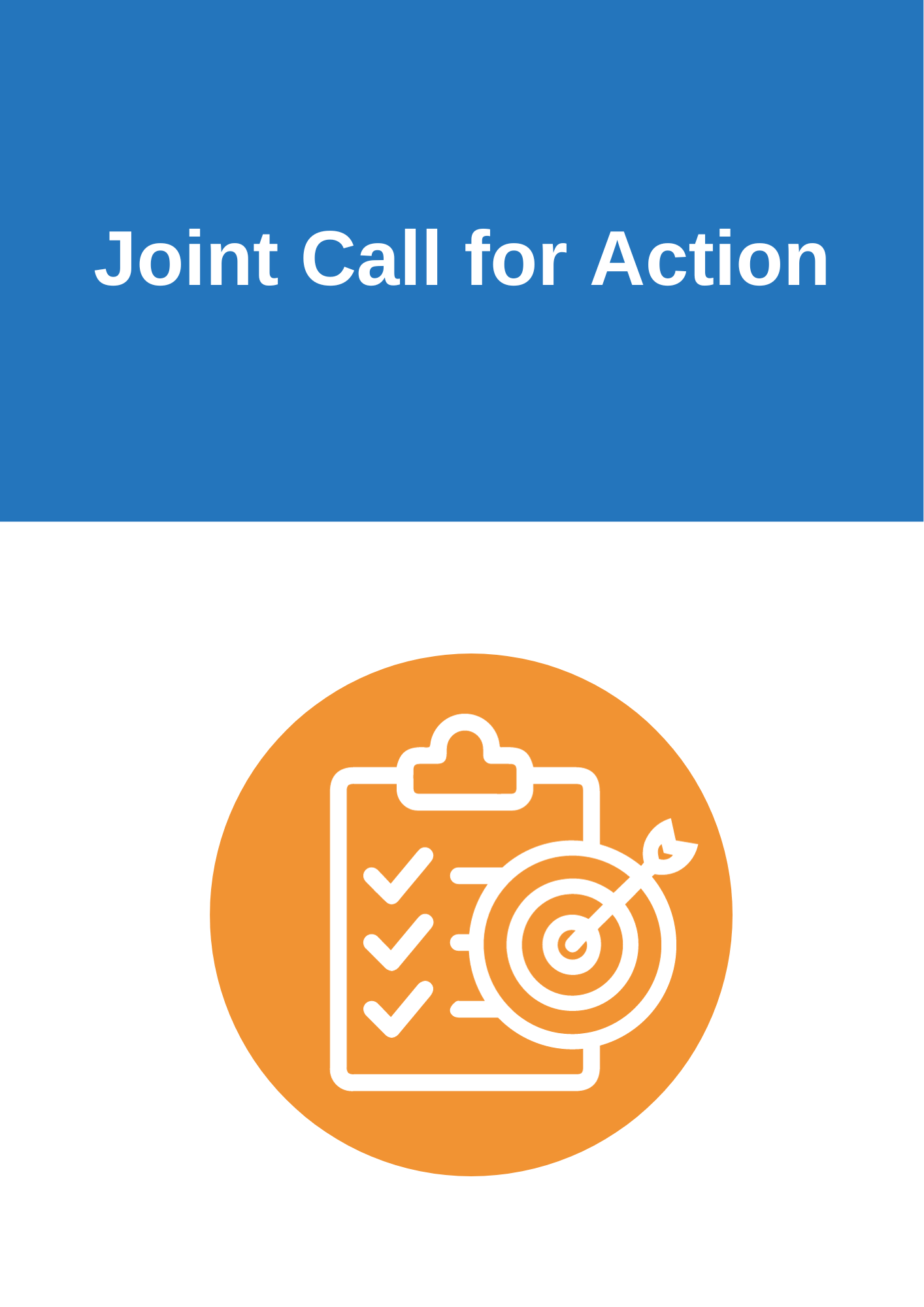-
Search -
Accessibility -
Members Login
200+ signatories from humanitarian, climate and development organizations have joined forces to champion a Joint Call for Action on a Loss and Damage Fund.
Background:
Communities that have contributed the least to climate change unfortunately find themselves the most vulnerable to its devastating effects. These communities endure severe impacts such as loss of lives, homes, livelihoods, and even cultural heritage. Climate change has also taken a toll on their mental and physical health. The frequency and intensity of these impacts continue to rise, presenting new challenges constantly and making it increasingly difficult for the affected communities to cope. Furthermore, humanitarian response systems are grappling with the rapid escalation of needs among those affected.
In mid-August, CAN-I and ICVA hosted two calls. Over 200 civil society members and partners from humanitarian, climate, and development organizations joined to shape the Joint Call for Loss and Damage Funding. We compiled suggestions from these calls into a document and provided feedback on what we have and have not incorporated. We also integrated redline comments from the draft sent out at the end of September.
This initiative for a Joint Call for Action on Loss and Damage Finance was a follow-up from the webinar on Humanitarian Response and Loss and Damage Finance: Coordinating Action to Meet Rising Needs. CAN-I and ICVA, as two NGO networks working closely with civil society members in the climate and humanitarian spaces, recognise the urgent need and timeliness to unite efforts in supporting communities facing both slow-onset and rapid-onset impacts, as well as economic and non-economic loss and damage.
Joint Call for Action by Humanitarian, Climate and Development Organizations on Loss and Damage Fund
Preamble:
In an era marked by the increasingly palpable ramifications of climate change, the interplay between its impacts and humanitarian crises has intensified. Marginalised and vulnerable communities in the developing countries, despite their minimal contribution to climate adversities, find themselves grappling not only with the direct climatic and environmental consequences of climate change but also with a myriad of pre-existing humanitarian and developmental challenges. These communities are also confronting both historical and systemic inequalities, underscoring the urgent need for climate justice.
At COP27 in Sharm el-Sheikh in 2022, a landmark agreement was forged, establishing a fund and funding arrangements to provide crucial financial support to address loss and damage. It is vital for the humanitarian, development, peace, human rights, and climate communities to operate in tandem. Their unified voice is crucial in ensuring the delivery of loss and damage finance to the affected communities. By fostering collaboration, we can secure a more holistic, comprehensive, and effective approach, reinforcing our commitment to safeguarding the rights, protection, dignity, and livelihoods of those most affected by the multifaceted challenges of climate change.
We are witnessing and enduring the repercussions of human-induced climate change everywhere, yet the impacts are disproportionately burdening those least responsible for causing the climate crisis, and it is only poised to worsen. The scale, frequency, and duration of climate-related extreme weather events are escalating, presenting new challenges due to slow onset processes such as sea level rise, loss of biodiversity, and the accelerating pace of desertification, all of which demand attention. While communities, local and national responders; and humanitarians are at the frontlines of this crisis, the overwhelming and escalating needs far surpass their capacities to absorb and recover from shocks. Moreover, the existing humanitarian financing system is ill-equipped to adequately respond to multiple and compounding climate impacts.
To address both economic and non-economic loss and damage arising from slow-onset processes and rapid-onset events, there is a need for a substantial increase in finance and in national capacities, through the Loss and Damage Fund, which can be accessed by countries and communities promptly. This is crucial to prevent communities from unjustly suffering the current, immediate, and prolonged ill-effects of human-induced climate change. Consequently, additional resources are essential to address loss and damage, thereby complementing the role played by the humanitarian system.
We are joining together to support the urgent calls for loss and damage finance under the UNFCCC based on four priorities: access, adequacy, additionality, and accountability.
Access: All developing countries necessitate and are entitled to loss and damage finance based on the principles of equity, justice and human rights. Special attention must be accorded to ensure that particularly marginalised and climate-vulnerable communities and individuals, on the frontline today and in the future, are able to access the loss and damage finance they need, as directly as possible. This must align with Grand Bargain commitments on localisation. Access should also be flexible, multi-year, timely, transparent, equitable and administratively light in the context of rapid-onset and slow-onset impacts.
Adequacy: Climate change is indisputably costly, with the annual costs already amounting to hundreds of billions of dollars in developing countries. As the frequency, scale, and duration of climate-induced extreme weather events and impacts of slow-onset events escalate, more and more people will continue to be affected in ways that surpass their capacity to fully recover from these recurrent calamities. Therefore, substantial financial resources are not merely desirable; they are essential. This includes fulfilling commitments for new and additional climate finance and addressing the shortfall in humanitarian finance. It is crucial that loss and damage finance is appropriately scaled to fully cover both the economic and non-economic costs of rehabilitation and reconstruction for affected communities. Additionally, it should equip them with the necessary tools and capabilities to build resilience to future climate-related risks and threats.
Additionality: Anchored in the principle of equity and Common But Differentiated Responsibilities and Respective Capabilities (CBDR-RC), developed countries are obligated under the UNFCCC to provide grant-based financing to address loss and damage in developing countries. It is imperative that this finance is new and additional to existing commitments for Official Development Assistance (ODA) to fulfil commitments under the UNFCCC and to have a meaningful impact on the lives of those most affected. Double counting, relabeling funds from one priority to another, or providing funding in the form of loans is unacceptable. Such approaches fail to address the true magnitude of the climate crisis and do not meaningfully serve the communities and individuals impacted by climate change. Additionality is a matter of both climate justice and operational necessity to meet the needs and protect the rights of the affected people.
Accountability: Accountability is central to loss and damage finance and is required at multiple levels. The repercussions of loss and damage are traceable to the actions, or inactions, of historical polluters responsible for the climate crisis, who bear the obligation to cover the costs of the harm inflicted. The governing body of the Loss and Damage Fund must establish robust systems to ascertain that finance earmarked for addressing loss and damage is distinctly accounted for, based on agreed criteria, and is disclosed publicly to maintain transparency. Both recipient and contributing nations must operate with utmost integrity, adapting their responses to the genuine needs of communities and respecting the human rights of local communities and the Free, Prior, and Informed Consent of Indigenous peoples. This commitment goes beyond mere assistance; it is about empowering impacted communities and individuals by fulfilling their rights to access information and to public participation, thus enabling agency amidst challenges.
Call to Action:
As climate threats escalate, prioritising substantial, timely, and accessible funding to support those most vulnerable to climate change is more than a moral duty – it’s an existential imperative.
We demand:
This is the year in which governments must unite to establish a Loss and Damage Fund for communities unjustly affected by climate change. We stand in solidarity with them, unified as humanitarian, development, peace, human rights, and climate communities in our urgent call.
If your organization would like to sign-on to the above Joint Call for Action, please fill this form.
Check below the list of signatories and other resources regarding the Joint Call for Action.

As climate threats escalate, prioritising substantial, timely, and accessible funding to support those most vulnerable to climate change is more than a moral duty – it’s an existential imperative.
Click the below link to access the List of Signatories.

Click the below link to access the Joint Call for Action document.

Climate Action Network International (CAN) Online Press Briefing on Loss and Damage Fund on 12 October 14:00 UTC
Recording of the briefing (Passcode :qe5j!81r)
Presentation on Loss and Damage finance